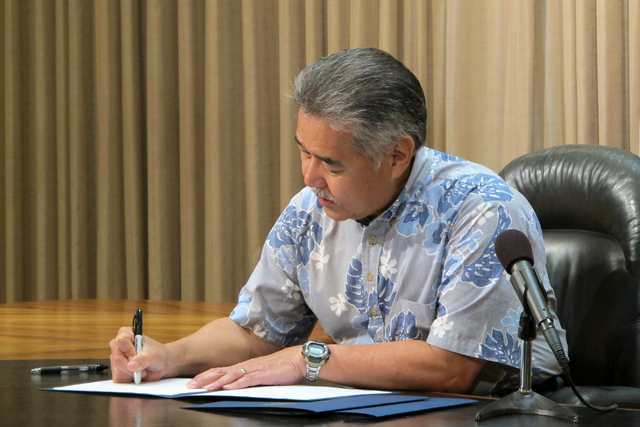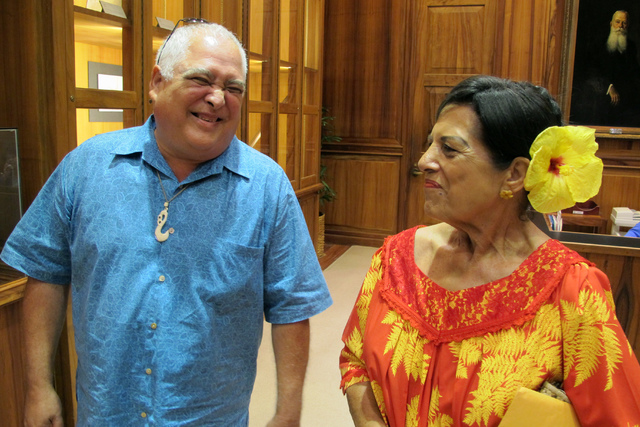HONOLULU (AP) — The governor of Hawaii signed a bill on Tuesday ensuring that Native Hawaiians can practice an ancient tradition in which a corpse is cleansed by fire and the bones are held as sacred in a natural cloth before being buried or interred.
Gov. David Ige approved the bill amid concerns by some crematories that the rarely used practice might be illegal.
In Hawaii, a person can be accused of abusing a corpse — a misdemeanor — if human remains are handled in a way that “would outrage ordinary family sensibilities,” according to state law.
Now, Hawaiian leaders plan to meet with funeral industry representatives to explore how families can handle the remains of their loved ones in a traditional way.
“It really does make it very clear that the most sacred traditions, burial traditions, are allowed to be exercised by our Native Hawaiian community,” Ige said of the new law.
Traditional Hawaiian burial practices vary from island to island, but a common thread among the practices is a reverence for the iwi, or bones.
“The iwi is the most sacred thing to the Hawaiian people,” said Leialoha “Rocky” Kaluhiwa, vice president of the Koolaupoko Hawaiian Civic Club. “You can get the mana (spirit) form the iwi. So people used to take the iwi and hide it, because they don’t want people to steal the mana.”
Traditional Hawaiian cremation and burials were not against the law, but the custom has rarely been practiced in recent years because of legal concerns.
“Even if this bill hadn’t been passed, there wouldn’t be any prosecution, but it’s nice to have that level of protection,” said Ken Ordenstein, owner of Ken Ordenstein Funerals.
Hawaiians and others who want to follow the ritual will probably utilize crematories instead of the outdoor, underground ovens people used in ancient times, said Mahealani Cypher, an advocate of the bill.
Ordenstein, who is Hawaiian, said his family business has performed a few traditional clean burials. He said the traditional cremation is essentially the same as a common modern cremation, but it’s interrupted so the bones remain intact.
Others in the funeral industry are figuring out whether and how they can accommodate requests for the ancient ritual.
“To me, it’s just the start of the discussion,” Ordenstein said of the law.









